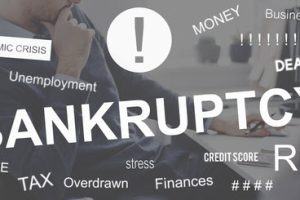Should I File A Chapter 7 In Indiana?

Many households struggle with excessively high credit card debt. In 2017, both the total debt load ($1 trillion) and per-cardholder average ($6,375) were at or near an all-time high. With balances that high, just making minimum payments is sometimes a challenge. If a financial storm hits, such as a job loss, the effects can be crippling.
The Supreme Court recently diluted some of the consumer protections in the Fair Debt Collection Practices Act. As a result, moneylenders may soon become even more aggressive than before when it comes to past-due accounts. Given the lack of safeguards, if you are more than two payments behind, a bankruptcy may be a good option.
Debt Discharge in Indiana
Chapter 7 eliminates most credit card debt because it is unsecured debt. The credit is based on a simple written promise to pay. Credit card debt is usually the largest category of unsecured debt. Some other examples include:
- – Medical Bills: According to some, high medical bills are the number one cause of bankruptcy filings. Medical inflation has substantially outpaced overall inflation for the past several years. Now, even if a person has insurance, a serious accident or illness may cost thousands or tens of thousands of dollars.
- – Small Business Association Loans: Most new businesses either fail outright or fall well below expectations. But the SBA loan must still be repaid even if the business is defunct. This obligation is dischargeable because a) it’s unsecured and b) it’s usually a line-of-credit as opposed to a loan.
- – Professional Fees: Attorneys’ fees from a prior divorce or lawsuit almost always run into the thousands of dollars. The debtor can still repay this money after bankruptcy, but such repayment is optional instead of obligatory.
Bankruptcy eliminates the legal obligation to pay the debt but not the debt itself. The collateral consequences remain. For example, past-due tax debt may be dischargeable, but debt discharge does not eliminate prior tax liens.
Special Categories of Indiana Unsecured Debt
Not all unsecured debt is always dischargeable. Mostly for public policy reasons, there are some special rules in some cases.
DSOs (Domestic Support Obligations), like alimony and child support, are not dischargeable under any circumstances. However, if your wages are being garnished or there is other ongoing adverse action, like a lawsuit, the Automatic Stay halts such activity.
The aforementioned tax debt is sometimes dischargeable. It could be from the IRS or the Indiana Department of Revenue. The restrictions are:
- – Income tax (not property or payroll tax),
- – Two years old,
- – Returns on file for three years, and
- – No “assessment” in the last 240 days.
“Assessment” usually means that the taxpayer has not received a bill or other correspondence mentioning the amount in the prescribed period. The taxing authorities are very particular about these dates. Note that Tax Day is not on April 15 every year.
Student loans are dischargeable if the debtor has an “undue hardship.” In the Seventh Circuit, which includes Indiana, that basically means that the debtor is unable to pay the loans due to a disability. Despite the apparent harshness of this rule, most Chapter 7 debtors who ask for relief from student loan debt obtain at least a partial discharge.
Connect With Reliable Lawyers
Chapter 7 erases unsecured debt. For a free consultation with an experienced bankruptcy attorney in Chicago, contact the Bentz Holguin Law Firm, LLC. After-hours appointments are available.
Resource:
cnbc.com/2018/01/23/credit-card-debt-hits-record-high.html


